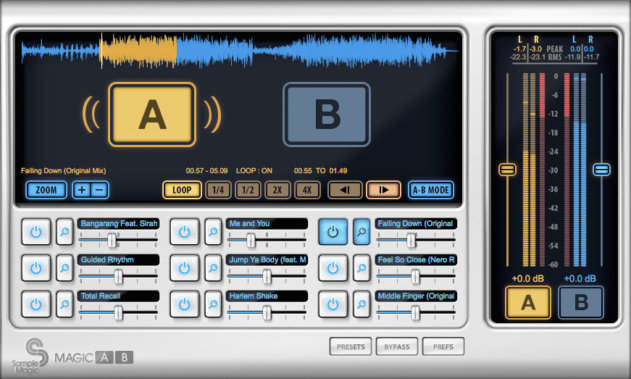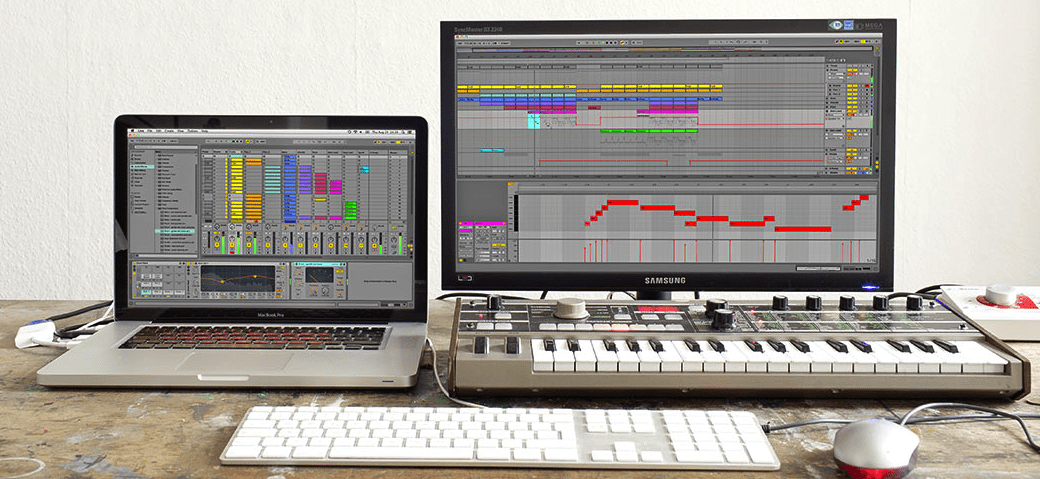Listen To Other Music

At the risk of stating the obvious, listening to tracks from artists and producers you admire is one of the easiest ways to improve your production process. But that means really listening, not just sticking on a mix podcast, cracking open a beer and dancing around your studio.
Critical listening sessions help with a couple of different things. Firstly, they enable you to tune your hearing to the sound of your speakers and room. This is important in delivering a final mix that holds up with the best in a club situation, particularly in terms of frequency balance. In fact, it’s often a good idea in the middle of a long session to take a break and refresh your ears with another track – partly to keep you sane, and partly to remind yourself what you’re aiming for.
Don't just stick on a mix podcast, crack open a beer and dance around your studio
There’s also a place for briefly playing parts of other tracks while mixing in order to A/B your own mix against known reference points. There are tools that can make this process easier, but the cheapest option is simply to import tracks into your DAW for direct comparison. You can also make use of analysis tools in conjunction with your reference tracks – listen first, then consult spectrum analysers and similar metering tools to help train your ears to recognise subtle differences.

07.59 PM
Thanks a lot for this very usefull article.
08.59 PM
Great article : one doesn’t need lots of stuff to achieve great ideas.
Always focus on the ideas, not on the gear.
I would also add that a few cheap tricks can strongly improve your listening accoustics. Read SoundOnSound articles in their archives on that matter (Studio SOS). I lost so many many years working in poor acoustics. Now that I solved this problem is like if I had a new pair of expensive speakers.
09.16 PM
On a 24bit system, you have to have your master at -72db to mix at 12bit, I frankly doubt anyone mix at those levels.
11.14 PM
finally someone’s addressed the reality of the situation. some much needed pragmatic advice
12.29 PM
Nice article that addresses many things that I have stumbled on. Such as when I adjusted my seat to my keyboards high enough caused me legs to hurt above and behind the knees because my feet didn’t touch the floor well enough. The solution was to lower the keyboard stand.
Few hints and my learning experience:
The modern computer master volume is outside the bit domain of the soundcard. and won’t cause degradion Use that if you have nothing else. Even the most basic built in audio chipset is at least 24 bit nowadays anyway.
The german Beat magazine has several free plugins that are excellent.
drumMic’a is a good free drum plugin.
I spent around 9 days in selecting a DAW few years ago. A one called Energy XT was by far the easiest to learn in my opinion. but deceptively powerful. The drawback is that the looks are dated and until recently not in much development.
I own now couple of other DAWS, but it is still my favorite.
Cakewalk has often excellent sales on their synths and their entry level DAWs at great discounts.
Isotope Nectar Elements is often on sale and powerful and easy to use plugin for voice.
Today I mainly use 3 commercial synths. The reason is that I invested time in studying them (as this artivce recommends and found that I could do virtually anything that I need). One is sample based, one a hybrid and the third is analog.
I found out I was spending to much time in checking out free synths. Don’t do the same, select rather few and stick to them.
I use mostly free effects or the ones that come with my DAW’s, (apart from Nectar Elements). I find it sufficient and think it will suffice most people (non pros).
I found creating a whole song a bit overwhelming. By sticking to smaller pieces but doing them well increased my confidence.
My other weak point was lack of experience with drums. Using and studying midi drum clips and modifying them rather then creating new beats, helped a lot in the beginning.
Also realizing that I spent too much time in tweaking sound of the beat in the beginning as I had wrong ideas of how it would sound in the final mix.
02.48 PM
Yup – even though on a 24bit system, using only 12-bits is theoretically down at -72db and Javier Z mentions that people don’t mix at that level, you’d be surprised at the way some people set their gain structure in a DAW – especially when using buses/groups, and then use the DAW’s output level as an overall monitoring volume control.
So 12-bits isn’t necessarily common, but i’ve seen it.
12.21 PM
Speaker placement:
” NOT TOO NEAR THE REAR WALL, ”
Well, Genelec recommends to keep the speakers either on the back wall or over 1 meter from the backwall. Backwall being as good as one meter. For most homestudios it’s better to have speakers on the backwall for most controll over the sound.